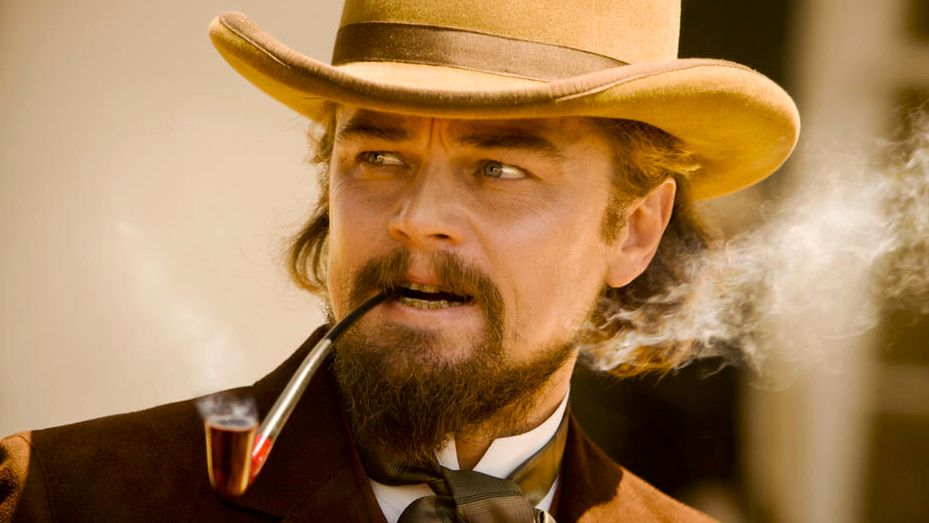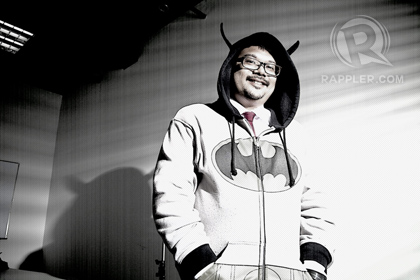SUMMARY
This is AI generated summarization, which may have errors. For context, always refer to the full article.

MANILA, Philippines – Following the Western tradition but being what director and screenwriter Quentin Tarantino calls a “Southern,” “Django Unchained“ is one of the most audacious, thrilling, and fun films around.
Tarantino takes his wicked vision of film and applies it to the classic genre, upending it, screwing with templates, and providing us something that is familiar and shockingly new at the same time.
We begin with the fortuitous meeting of Django, played by Jamie Foxx, and the dentist turned bounty hunter Dr. King Schultz, in a brilliant and Oscar-winning turn by Christoph Waltz. Schultz frees Django and offers him his freedom in return for his aid in tracking down fugitives that Django can identify.
As the two men hunt their prey they form a bond which leads to Django revealing that he and his wife Broomhilda (Kerry Washington) were separated by their masters. Schultz vows to help Django find his wife while teaching him the tricks of the bounty hunting trade.
This leads not only to some fantastically gratuitous violence, but also to a number of funny scenes showing how Schultz uses his charm, wit, and way with words to do his work. Often this allows Tarantino to deploy his mastery of dialogue, filling the film with sparkling lines.
Watch Jamie Foxx talk about the movie here:
There’s a lot of dialogue that people have found contentious with the film, particularly with language. But we’ve always known that Tarantino films were not for those whose ears are unaccustomed to foul language. The thing is that the usage of specific language actually makes his characters more believable within the contexts of his film.
Believability here is relative, of course. Much like “Inglorious Basterds” which drew on historical events and then went off and rewrote history, “Django Unchained” takes on one of the most contentious periods of American history, squaring up against one of the most controversial issues that continues to trouble the country, and then it creates a revenge-liberation narrative within that.
There has been criticism that Tarantino did not make a film about revolution and the overthrow of slavery. But then “Django Unchained” seems exactly the film that we would want and expect from the filmmaker. It doesn’t go political, or as political as others would like; rather, it goes for the filmic.
In the filmic, we have a number of levels at play. Most apparent is the film’s appropriation of genre. It is a Western, and it takes many of the familiar elements, but always with that Tarantino touch. The violence is the furthest thing from sanitized, and it’s easy to imagine most viewers squirming from even the most cartoonish of violence here.
READ: ‘Django Unchained’ is a bloody curiosity
Even more demanding of viewers is when the violence is realistic in its portrayal, particularly in the violence done to punish slaves. These were definitely a part of the time period, but their occurrence is largely whitewashed from traditional Westerns.
Further, in retelling this time period and genre, one might think that Tarantino is engaging in historic revisionism (similar to his killing of Hitler and other major players in the Nazi regime in “Inglorious Basterds”). However, I would posit that it isn’t history that he is attempting to revise, but rather he is trying film history revision.
He is, by telling this story, trying to contribute to and thus changing the Western. It’s interesting that, from here on out, when I watch a Western, I will be left thinking of how Tarantino has changed and enriched my viewing of it through his interpretation of it in this film.
And if all of this talk sounds like hoity-toity stuff, then fret not. Because “Django” isn’t just a film to write papers about, it’s also an exciting film experience that will absorb viewers. Even though it runs at 2:45, one barely notices it because the movie moves at such a great pace.
It goes to many places too, from straight up action to goofball comedy (quite possibly the best comedy routine featuring Ku Klux Klansmen ever), to the amazing tension at the dinner table in the film’s last act. It is propulsive and engaging throughout with nary a dull moment.
Watch the trailer here:
Even when characters are saying despicable things, as Leonardo DiCaprio’s Calvin Candie does often, they are entertaining and charming. Coming in with possibly the funniest performance is Samuel L. Jackson as Stephen, Candie’s most trusted slave who sputters racist insults left and right.
It’s difficult for a film to find that kind of balance, where it could so easily be distasteful and offensive, and instead it becomes challenging and even more worthwhile to watch because of its willingness to push the bounds of what might be acceptable onscreen.
If anything, there was only one moment when I was pulled from the world that Tarantino created, and it’s unfortunate that it was the moment when the auteur himself showed up onscreen, sporting an Aussie accent. Otherwise, the fictional Western film world that he constructed holds and entrances, even as it portrays such gratuitous violence as to make us look away from the screen.
Brilliantly though, the harshness of those acts is offset by various kindnesses and tendernesses shared between characters. Most of all, the whole movie and drive of Django is rooted in the quest to reunite two lovers.
“Django Unchained” is a must see film, another triumph for Tarantino and everyone else involved. Don’t miss it. – Rappler.com
(‘Django Unchained’ opens March 13 in the Philippines.)
Carljoe Javier doesn’t know why people think he’s a snarky film critic who spends his time dashing the hopes of filmgoers. He thinks he’s not all that bad, really. He teaches at the State U, writes books, and studies film, comics, and video games… Then again, those people could be right.
Add a comment
How does this make you feel?

There are no comments yet. Add your comment to start the conversation.